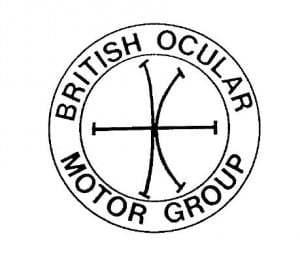This week I will be presenting my research on how damage to the prefrontal cortex affects eye movements at the 24th British Oculomotor Group Meeting (BOMG) hosted by the Eye Movements and Cognition Lab at Kingston University.

Whilst at Cambridge University on Sabbatical in 2009 I was privileged to work with a group of patients with very localised damage affecting the very front of the brain. In most cases this was due to unavoidable collateral damage occurring when a brain tumour had been surgical removed. People with this type of brain injury are often remarkably unaffected by their injury and it can often be quite hard for a psychologist to find tasks that they can’t do perfectly well! But my research found that they made significantly more mistakes when required to switch between rules linking 3 different coloured cues with eye movements towards 3 possible locations (e.g. blue=up, red=left and yellow=right). These videos from my You Tube Eye Movements site show example trials from the task (http://www.youtube.com/watch?v=HY6SY5whZAU).
One outstanding question following on from this research is whether this impairment in an artificial computer based task in the psychology lab might have implications for what things people with this type of brain injury can or can’t do in the real world. We often have to make arbitrary connections between what we see and where we look during every day tasks and these patients may find this particularly difficult.
Please feel free to get in touch with me if you are interested in this research for whatever reason and I can tell you more about it.
See also: Research explores rule switching across the life span
